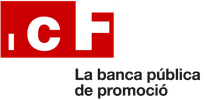The two loan facilities rolled out by the Institut Català de Finances and the Catalan Housing Agency (AHC) in 2018 have allocated €73.2 million to acquiring and developing social rental housing. These loans have enabled Catalonia’s social housing stock to be increased by 969 flats up to May, thus helping vulnerable people to find affordable properties.
Barcelona, 28 June 2021. The Institut Català de Finances (ICF) and the Catalan Housing Agency (AHC) are stepping up their commitment to supporting social rental housing by extending the term of the financing facilities for developing and acquiring social rental flats to 30 years.
The loan facilities, which until now had a term of 25 years, will provide private and public developers and also local councils, nonprofits, third sector organisations and social developers with an additional five years to repay the loans, which still have a two-year interest-only period included in their term.
This extension of terms meets the needs of developers and organisations seeking a longer loan repayment period so as to make development and acquisition more affordable.
In addition to extending the term for paying back the loan, the ICF and AHC have also agreed to amend the conditions of the facility for building social rental flats. Specifically, the minimum loan amount has been raised to €120,000 and up to 80% of the cost of construction with a ceiling of €120,000 per property.
Furthermore, to cover the percentage of the work which is not financed by the ICF’s housing development loans, the AHC has opened a call for grants for developing social housing properties and accommodation units for leasing or grant of use. The grants will be equivalent to 20% of the cost of building these developments with a ceiling of €30,000 per property and €16,000 per accommodation unit, thus ensuring that 100% of the cost of the work is covered.
Social housing goes up by almost 1,000 flats
In the second half of 2018, the ICF and ACH rolled out two loan facilities with preferential conditions to foster and finance building and buying social rental housing. From their start-up until the end of May, 277 transactions have been concluded worth €73.2 million.
Of this total volume, €27.8 million has gone to loans to private and public developers to build new properties and €45.4 million in loans to local councils, nonprofits, third sector organisations and social developers to acquire housing through rights of first refusal and setting aside. The latter financing facility, which has amassed 252 transactions, has supported schemes run by organisations including the Hàbitat3 Foundation, the Mambré Foundation, the Prohabitatge Association and the Foment de l’Habitatge Social Foundation.
This has led to the addition of 969 flats to Catalonia’s social housing stock, 588 under the acquisition facility and 381 new-build flats funded via the development facility. “As a public bank, it is crucial we back projects which add value to society as a whole,” commented Víctor Guardiola, the ICF's CEO. “We also need to build synergies with other associations to deliver funding solutions which help to achieve this goal of providing social rental public housing stock that meets society’s needs.”
Alongside these two financing facilities, the ICF and the AHC, also have other solutions for funding structural maintenance, accessibility and energy efficiency investment in homeowners’ associations. These loans, rolled out in late 2019, mark a major change in access to finance for communities and plug a gap that has long been highlighted by the entire sector. By the end of May, €1.4 million in funding had been allocated to 14 maintenance projects.
About the ICF
The Institut Català de Finances is Catalonia’s public financial institution. Its main mission is to foster funding for the business community in Catalonia in order to support the growth, innovation and sustainability of the Catalan economy. The ICF acts as a complement to the private sector by offering a wide range of financing solutions focusing on loans, guarantees and venture capital. Since 2014 it has been a member of the European Association of Public Banks (EAPB), which brings together most of the public banks and financial institutions operating in Europe.
